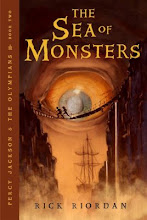I’ve been fleshing out the “world” for my WIP while busting out cardio at the gym these last few days. Key people, history of events, allied and competing factions, the role of magic, that sort of stuff. It’s a lot harder and a lot more involved than I expected!
Additional depth and flavor to a story comes by establishing a setting rich with background detail. I think this is especially true of fantasy lit, since the reader can’t necessarily draw from real world knowledge to fill in the gaps. You essentially have to build the world for them from scratch.
While dreaming up these world elements, I often wonder where the sweet spot is between using familiar conventions for accessibility and coming up with unique ideas to demonstrate originality. For example, is it bad to have Tolkien-esque elves in your world, ones that live hundreds or thousands of years and maintain only tentative, lukewarm relationships with mankind? Or fire-breathing dragons that dominate the sky and instill awe and fear in your main character? Or kind old wizards who are a key source of wisdom, encouragement, and power?
I think the term “unique” is very relative in the realm of fantasy lit, particularly those with a medieval, high-fantasy flavor. With all the Middle-earths and Narnias and Prydains on the shelves already, you’d be hard-pressed to come up with anything truly original.
But there’s a difference between “familiar” and “trite”, and perhaps, the elusive formula involves keeping the amount of borrowed elements low enough that your setting doesn’t slip into that latter category. An original story or perspective also seems to go a long way in excusing the use of less innovative material. David Eddings’ Elenium series is an excellent example, including Crusades-style knights, a poisoned queen, and a powerful sorceress among its key pieces. Yet the author’s tweaking and positioning of these elements make for an enjoyable story that has that distinctive Eddings touch. (I think language/writing style has a lot to do with it as well.)
What do you guys think about borrowed fantasy elements? Does it irk you when you encounter them in your reading? Do you appreciate the familiarity that comes with it? Is there a line that should not be crossed? Do you have examples of books that marry familiar fantasy components with unique elements and perspectives? (That last one is a bit of a solicitation for future review material. I have three books on my reading queue already, but I'm always looking for more suggestions!)
Subscribe to:
Post Comments (Atom)






I think there are some elements that define fantasy that you can't get away from, simply because of the genre. That said, it's the plot that you construct around those fantastical elements that needs to be different. Which is also hard in fantasy because of the epicness or quest nature of it.
ReplyDeleteThis is a tough question...I personally don't mind borrowed fantasy elements if they're done well. Sometimes I feel like authors take those elements and make them lame/hokey and then other authors will do a unique spin on those familiar elements. So, I guess it depends but I have faith in you, your writing ability, and your creativity to make borrowed fantasy elements absolutely incredible. No pressure, right? :)
ReplyDeleteI'm coming up blank with examples of either type but if I think of any, I'll let you know.
My personal opinion of borrowed elements is neutral. I do think the realm of possibilities regarding literary innovation has nearly reached its limit, I mean how much farther can we go? I don't particularly care whether there are generic elves or dwarves, as long as they are part of the setting and not the main cast of the book. I am not a fantasy aficionado, so I not going to pretend to be anywhere near expert level on this topic, but I like the way Kristin Cashore uses elements from the Middle Ages, which is Tolkienesque, and adds elements of martial arts, the present, and makes things up herself. I think her debut novel, Graceling, is slightly amateur sounding in voice, but she coaxes you into falling in love with several of her characters, at which point the setting and other characters have to settle for a cameo.
ReplyDeleteI'm neutral like Jonathan and agree that it is plot like Elana. And like Trina I think it is what you do with the elements that counts the most. World building is darn hard, that is why folk talk about it so much I spose (and for that matter plain realistic novels are hard to write too). I think in the end if the reader buys what your trying to sell you can borrow whatever you want!
ReplyDelete@Elana: Totally agreed. The epic/quest nature of most fantasy lit is a common theme. Saving the realm, overthrowing a tyrant, rescuing the princess, it's all been done before--many, many times. And people don't seem to mind, judging by the size of the fantasy section of the bookstore.
ReplyDelete@Trina: Aww, shanks Pig. :) And I agree, it's hard to put your finger on what that unique spin is. Maybe it's the depth and development of the characters? Those are unique to the author and story, even if the setting is somewhat derivative.
@Jon: Agreement here too, buddy. Everything's been done before, and I'm okay with that. Heck, it gives me an excuse to steal from established elements for my own book, right? :) And yeah, I've decided it's all about the characters.
Oh sorry, Tina! You commented while I was responding. Thanks for the advice and encouragement. I feel better about things now. :)
ReplyDeleteWow. I popped over from Jonathon's blog, and I am so happy I did. These are my kind of books! I'm going to have to catch up on your past posts. :-)
ReplyDelete